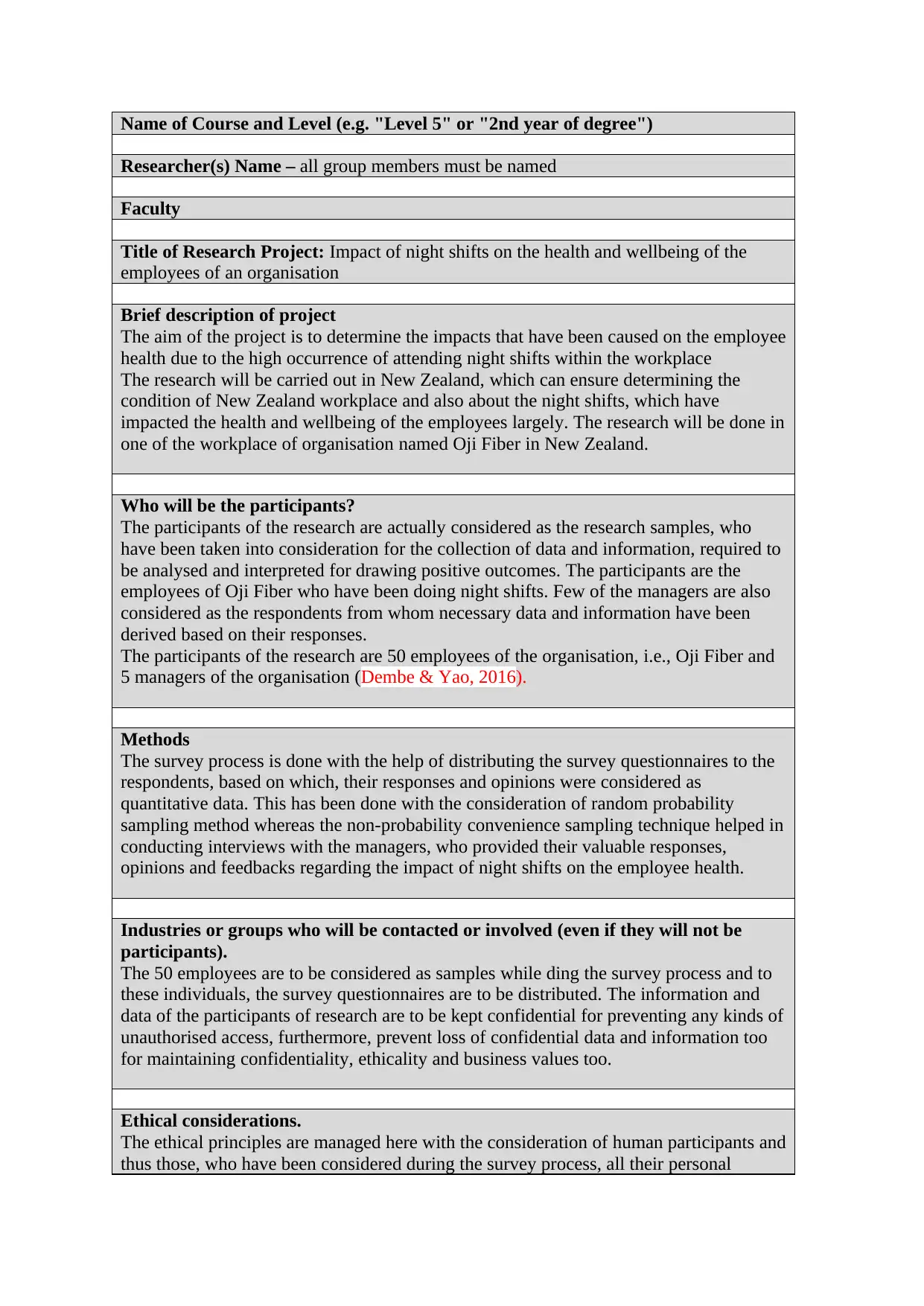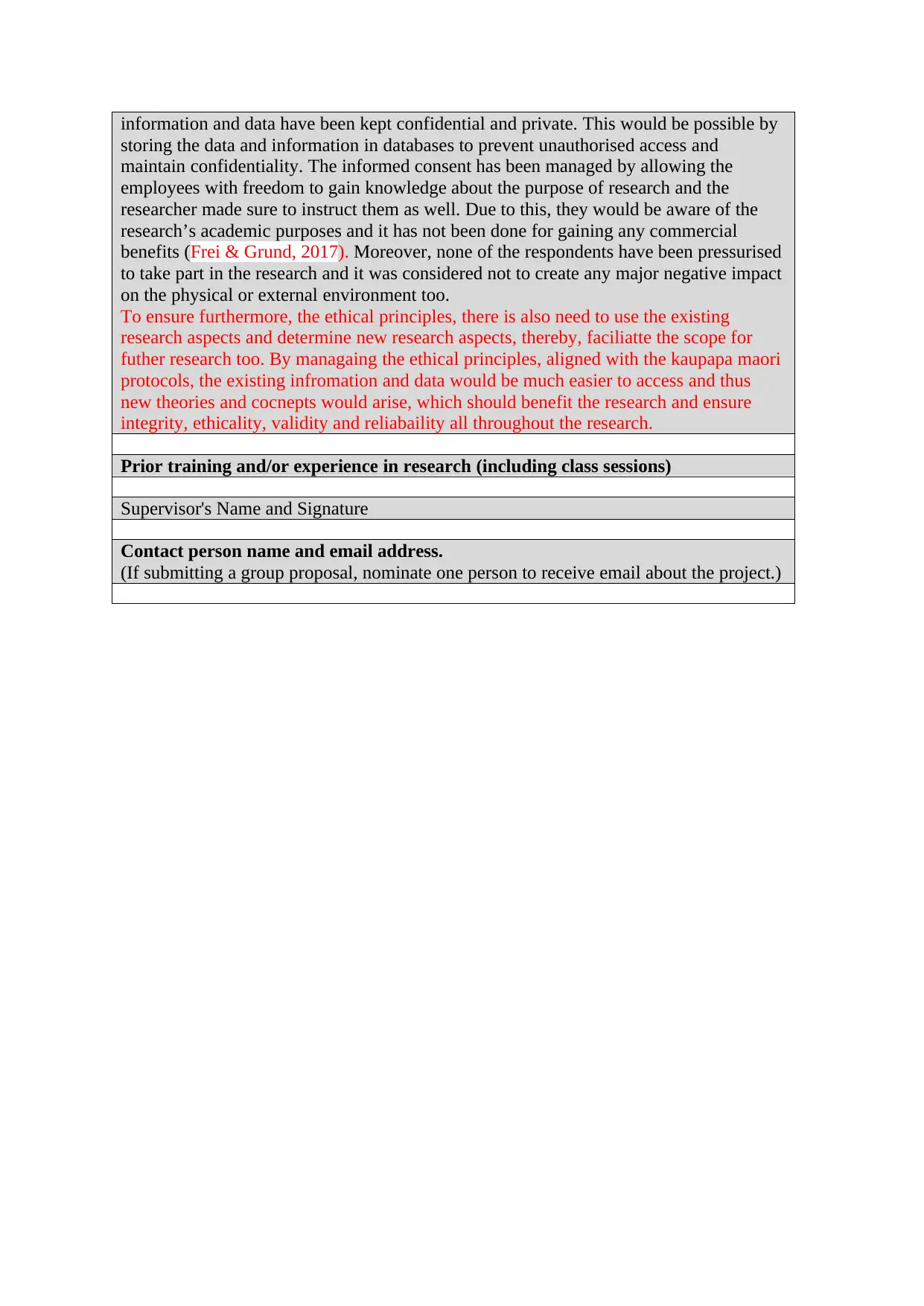Impact of Night Shifts on Health and Wellbeing of NZ Employees
VerifiedAdded on 2022/08/20
|3
|777
|19
Project
AI Summary
This research project investigates the impact of night shifts on the health and wellbeing of employees in a New Zealand organization, Oji Fiber. The study aims to determine the adverse effects of frequent night shifts on employee health. Data collection involves surveys distributed to 50 employees and interviews with 5 managers, employing random probability and convenience sampling methods. Ethical considerations are paramount, ensuring confidentiality, informed consent, and the avoidance of any commercial benefits. The research adheres to ethical principles, including protecting participant data and respecting their autonomy, while also considering the application of existing research for future studies. The project utilizes existing research aspects, facilitating new theories and concepts, thus ensuring integrity, ethicality, validity, and reliability throughout the research process. The research is designed to contribute to a deeper understanding of workplace health issues related to night shift work and provides insights into how organizations can improve employee wellbeing.
1 out of 3









![[object Object]](/_next/static/media/star-bottom.7253800d.svg)